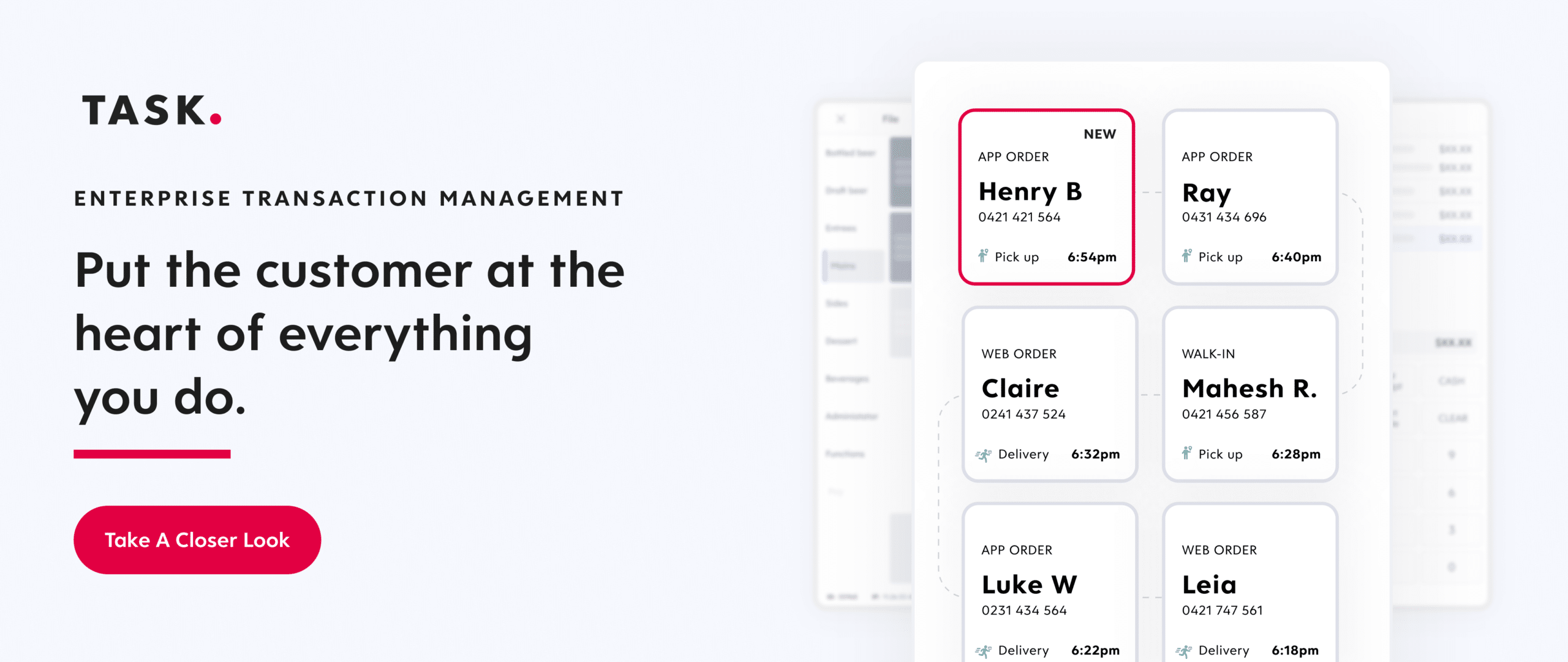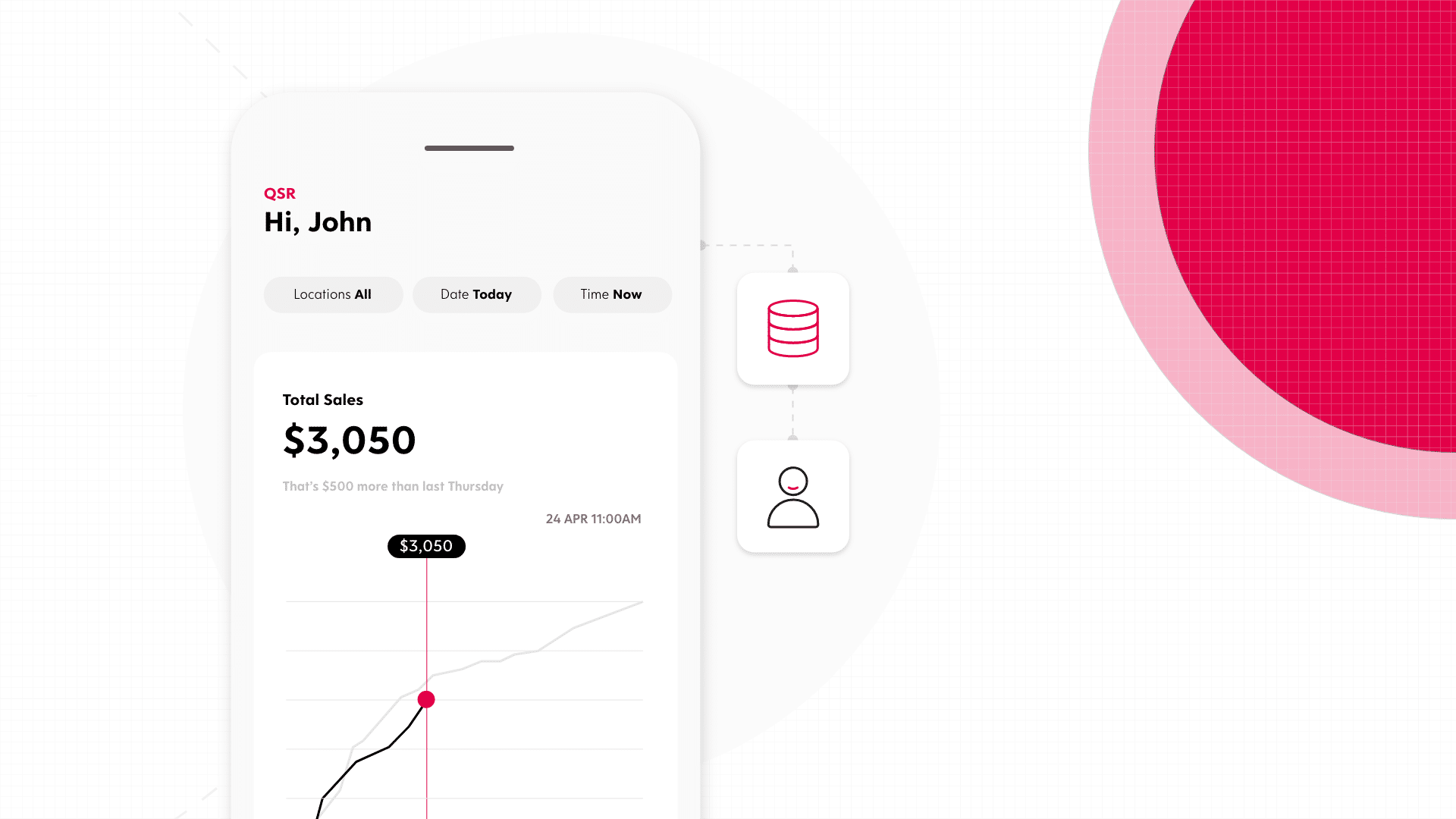Most hospitality businesses today understand that collecting customer, sales, and transaction data is essential to driving growth and increasing revenue. However, very few of these businesses actually plan and strategize how they will analyze, streamline, and action insights across their business operations.
If your business is looking towards the tech-oriented future of the hospitality industry, then it might be time to start looking at a more strategic angle for incorporating your data.
What are the critical elements of a successful hospitality business in today’s market?
Before digging into the specifics of how to consolidate and use your data, it’s important to take a step back and consider the big-picture goals and expectations that businesses should be working towards.
TASK Group’s Chief Strategy Officer, Kathryn Byrne, explains that the overarching vision for tomorrow’s leading hospitality enterprises is having a fully-integrated digital ecosystem that drives every component of the business. “Every element of your omnichannel operation – from the customer experience to your loyalty program, your workflow, and your kitchen management – should work harmoniously to improve one another,” says Kathryn.
The core components of this ecosystem include:
- Consistent and quality customer service and communications
- A seamless omnichannel experience
- Menu engineering that reflects the most relevant customer demands
- Operational efficiency that results in quicker, smoother food preparation and order taking
- A robust and continuous auditing process with adherence to KPIs
- Measurable staff satisfaction
These key elements should be central to any kind of hospitality venture wanting to see their revenue and impact grow – whether a QSR business, a dine-in restaurant enterprise, or even a stadium. Zach Lumley, TASK’s Director of Stadiums and Venues, agrees: “The ecosystem model should be a guiding principle for any future-oriented business dealing with food and beverage. There are so many new technologies and ideas being piloted at stadiums that will eventually trickle into QSRs. It’s so important to understand the overlap in these industries, and start seeing the potential in one as an opportunity for the other.”
To work towards a seamless ecosystem that leads forward each of these core components, businesses need to focus on actionable data analytics. Kathryn says, “At the center of that ecosystem is a constantly growing database that can be leveraged across your business.”
Make Data-Driven Decisions with a Transaction Management Platform
A digital transaction management platform streamlines business operations for hospitality businesses, saving money and time.
What can data analytics do for your business?
While most hospitality businesses already have some mechanism for collecting and storing customer data, surprisingly few have a strategy for analyzing or actioning the information in their database. Most often, that is because businesses begin gathering data before they understand how it can be used.
Data analytics unlock better forecasting opportunities, which can be applied across all areas of the business. Restaurant analytics can improve operational efficiency, which leads to lower cost margins, higher satisfaction rates, and better revenue growth.
Quality data doesn’t just show which food items are popular and when but can uncover why those shifts in demand are happening. For example, data, when collected and leveraged appropriately, could reveal that a spike in customer requests for extra sauce has a direct link to a marketing campaign targeting a specific customer segment, giving you stronger insight into the effectiveness of your engagement strategy.
“What is incredible about an integrated digital ecosystem,” says Kathryn, “is that each piece of insight offers value to another element of your business.” Data optimizes the flow of information, learnings, and opportunities between departments, which fuels a centralized source of truth for your business.
Why is it important to consolidate your data?
One of the problems growing businesses often face is having too much information with no direction or strategy to hone it down. Consolidating data is an essential step for businesses to identify what pieces of insight are important to each area of operations. The result will ensure better decisions made quicker, and a more unified view of who your customers are and what they think of your brand and offerings.
Behind the scenes, consolidated data around what ingredients, items, and recipes are or aren’t working helps you engineer your menu. This insight will also help make your inventory management process more efficient, leading to less food waste and better margins.
When it comes to customer service, data helps you understand your customers’ needs and preferences. Focusing your data on insights around behavior, feedback, and behavior is the key to driving high retention rates and customer lifetime value. Consolidated, leveraged data helps you implement a relevant and more resonant customer experience – and ensure that it is consistent across digital and in-store channels. Over time, this level of quality and continuity will lead to higher customer satisfaction levels and long-term trust in your brand.
Consolidation, as Zach explains, is part of an overall process to set meaningful intentions before implementing a new piece of tech. “You need to have a core strategy for why you want to adopt new technology or gather another element of customer data. Right now, many businesses are quick to just gather as much information as possible, but collecting data just to have it doesn’t actually help you achieve anything. Establish the arc first, and then invest in the tech to make it happen.”
How to Leverage Transactional Data
Curating an effective, personalized customer experience is only possible if you leverage accurate, real time transactional data. Learn more about how data can help you boost revenue and keep customers happy at the same time.
How to use data insights to add value and efficiency
In practice, data insights should help managers make better decisions both in the big picture of the business and on the ground in real-time.
The big-picture opportunities can involve automating workflows for staff in the kitchen, the ordering counter, or the manager’s office. The right data can also carve out huge opportunities for efficiency in inventory, staffing, and demand planning. TASK’s Vice President of US Business Development Trevor Dee highlights how data offers exceptional value when it comes to reducing time, food waste, and costs using integrated Restaurant Inventory Management tools.
Trevor says, “Utilizing the TASK stack, we can accurately determine the capacity of a kitchen at all times of the day in real-time, as well as leveraging historical data to predict future wait times. This ensures that you are always offering your customers a strikingly accurate wait time for their online orders. It also allows you to direct your customers to other menu items with shorter wait times that they may not have considered. This is where tangible value to your customers also helps businesses optimize their busy periods, make the most of their kitchen, and increase outputs.”
It is important to understand that this kind of technology works in conjunction with data to actively help your business thrive. By creating a continuous flow of historical data, real-time data, and predictive analytics, hospitality vendors can deliver high-impact value in the moment while also improving accuracy for the future.
Realize better outcomes by focusing on data-driven operations
“Everyone we come across has their unique challenges and opportunities – so as a technology partner, our job is to figure out what part of the TASK stack is going to deliver the most impact for each specific business,” says Trevor. “That process of really getting to understand the specific positioning cannot be underestimated.”
When choosing how to approach a more strategic system for consolidating and leveraging your data, it is crucial to consider how your new technology will support and improve your overall customer experience and business outcomes.
A fully-integrated digital stack can offer exceptional opportunities for better loyalty, faster growth, and more comprehensive databases. However, asking yourself what is most important right now in terms of data and tech, and what will help you transition toward future growth, should be your first consideration.
Remember that the foundation of well-functioning and value-adding technology is a focused, strategic process for data collection and analytics. To pave the way for future optimization, start by taking a close look at how you could leverage and use your data to drive better efficiency across your entire operation.

